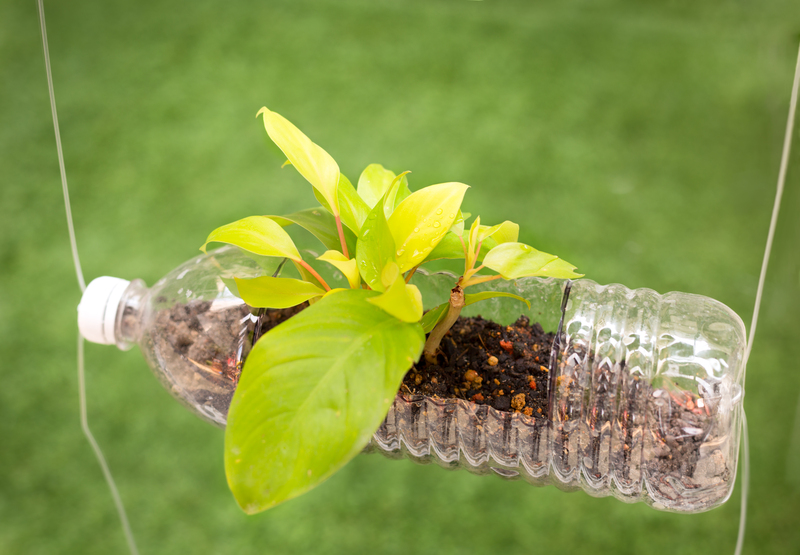Discover Essential Tips to Enhance Home Recycling Efforts
Recycling at home is more important than ever in our ongoing quest for a sustainable lifestyle. With the world generating increasing amounts of waste, every household can make a significant difference by refining its recycling habits. In this comprehensive guide, you'll discover essential ways to amplify your home recycling initiatives, reduce environmental impact, and foster a greener future for your family and community.
Why Home Recycling Efforts Matter
Effective home recycling minimizes landfill overflow, conserves natural resources, and cuts down on pollution. When families recycle diligently, they help keep the environment cleaner and support a circular economy. Beyond the environmental benefits, improved household recycling practices also encourage neighborhood participation and inspire others to join in sustainable living.
- Saves energy and resources: Recycling conserves raw materials and requires less energy than manufacturing items from scratch.
- Reduces pollution: Proper waste segregation prevents harmful chemicals and toxins from leaching into soil and waterways.
- Promotes community health: Efficient waste management leads to cleaner surroundings and better air quality.

Understanding What Can (and Cannot) Be Recycled at Home
Before you try to enhance your home recycling efforts, it's crucial to know which materials your local recycling program accepts. Each municipality has its own rules. Generally, recyclable items include:
- Paper and Cardboard: Newspapers, magazines, office paper, corrugated boxes.
- Plastics: Bottles, containers, and packaging with recycling symbols (check the number inside the triangle).
- Metals: Aluminum cans, tin cans, foil (clean and dry).
- Glass: Bottles and jars (separated by color in some areas).
Non-recyclable household items often include greasy pizza boxes, plastic bags, Styrofoam, certain takeout containers, and mixed-material packaging. Contaminating your recycling bin with non-approved items can derail the entire process. Always check local guidelines for specific inclusions and exclusions.
Tips to Improve Home Recycling Practices
1. Set Up a User-Friendly Recycling Station
Organize designated bins for recyclables in convenient spots throughout your home, especially the kitchen, garage, and bathroom. Label each bin to distinguish between paper, plastic, glass, and metal. Using color-coded or clearly marked containers reduces confusion and increases participation from all household members.
- Tip: Place smaller recycling baskets in bedrooms and home offices to catch paper waste.
- Tip: Ensure recycling stations are easily accessible to kids and guests.
2. Learn to Rinse and Sort Properly
Food residue on containers can contaminate entire batches of recyclables, causing them to be diverted to landfill. Remember to rinse jars, cans, and containers before tossing them into the bin. Remove lids and bottle tops, as they are often made from different materials.
- Flatten cardboard boxes to save space in your bin and local truck loads.
- Keep recyclables dry--moisture can ruin paper products and attract pests.
3. Avoid "Wishcycling"
"Wishcycling" is the act of tossing non-recyclable items in the recycling bin with the hope that they'll be processed. This actually creates more work and expense for recycling facilities and may contaminate loads, causing perfectly good recyclables to end up in landfill.
- Research your local recycling rules--keep a list of accepted items handy.
- When in doubt, throw it out to avoid contamination.
4. Recycle Electronics Responsibly
Electronic waste (e-waste) is a growing issue. Old phones, batteries, and computers contain materials that are hazardous if not disposed of properly. Never place electronics in your regular recycling bin. Instead:
- Drop off e-waste at dedicated community collection events or specialized recycling centers.
- Many electronics retailers, like Best Buy or Staples, offer take-back programs for small devices.
- For batteries, look for local hazardous waste days or dedicated collection bins at supermarkets.
5. Compost Organic Waste to Reduce Landfill Trash
While not technically recycling, composting is an essential way to enhance home recycling efforts. Food scraps, coffee grounds, and yard waste make up a significant portion of household garbage. By composting these materials, you divert them from landfill, generate nutrient-rich soil for your garden, and reduce greenhouse gas emissions.
- Start with a kitchen countertop compost bin and empty it into a backyard pile or city-provided composting service.
- Avoid composting meat, dairy, and oils--these can attract pests.
How to Get the Whole Family Involved in Home Recycling
Enhancing household recycling efforts is more effective when everyone participates. Here's how to get all ages excited about recycling:
- Teach kids about the benefits of recycling through games and challenges--see who can sort the most items correctly in a week!
- Post printed guides or infographics above bins to make sorting simple and educational.
- Share the impact of your efforts with the family--track how much waste you've kept out of landfill each month to celebrate your progress.
Advanced Home Recycling Strategies
Buy Products Made with Recycled Materials
Close the recycling loop by choosing products with post-consumer recycled content. From toilet paper to office supplies and building materials, supporting these products increases demand for recyclables and reduces dependence on virgin resources.
- Look for labels such as "Made from Recycled Materials" or specific recycling symbols.
- Encourage local shops or markets to stock more recycled content products.
Reduce and Reuse Before Recycling
Although recycling is vital, reducing what you consume and reusing items is even better for the planet. Aim to minimize single-use plastics and disposable packaging in your home.
- Opt for reusable shopping bags, coffee cups, and water bottles.
- Purchase bulk items to reduce packaging waste.
- Repair, donate, or upcycle old furniture and clothing rather than throwing them away.
Participate in Community Recycling Programs
Many communities offer special collection days for bulk items, hazardous waste, or unique materials (like textiles and light bulbs). Take advantage of these programs to maximize your home recycling efforts and responsibly dispose of items not accepted in curbside bins.
- Join local clean-up events or recycling workshops to meet like-minded neighbors.
- Host a recycling drive to collect batteries, electronics, or plastic bags for proper disposal.
How to Handle Common Home Recycling Challenges
Dealing with Limited Space
Not every home has ample space for large recycling or compost bins. Here are clever space-saving solutions:
- Use stackable, modular bins that fit under sinks or in tight closets.
- Compress recyclables (such as plastic bottles or cans) to maximize bin capacity.
- Schedule regular drop-offs at community recycling points if curbside collection isn't available.
Avoiding Odors and Pests
Unrinsed containers or improper food waste handling can cause bad smells or attract pests:
- Rinse recyclables before binning them and keep lids on all containers.
- Emptied bins regularly and clean them with a vinegar solution to sanitize.
- If you compost, use covered bins and add dry materials to minimize odor.
The Benefits of Optimized Home Recycling Initiatives
Enhancing your home recycling practice yields rewards for you, your community, and the environment:
- Decreases waste sent to landfill, prolonging the life of landfill facilities.
- Lowers greenhouse gas emissions associated with producing new products.
- Saves money on waste disposal fees and can sometimes earn rebates for recyclables."
- Fosters a responsible, sustainable community culture.
With every bottle, can, or box sorted correctly, your household is making a difference for the planet!

Frequently Asked Questions About Home Recycling
How do I know what plastics can be recycled?
Look for the recycling triangle symbol on your plastic items. Plastics labeled #1 (PET or PETE) and #2 (HDPE) are widely accepted, while #3-#7 may have restrictions. Check with your city's waste management department for a clear list.
Can I recycle pizza boxes?
Only if they are free of grease! Tear off and recycle the clean, cardboard portions. Greasy or soiled parts should go in the trash or compost if accepted.
Are glass and plastic lids recyclable?
Often, these items require separate recycling because they are made from different materials. Remove lids and caps from bottles and check local regulations before recycling each part.
What should I do with shredded paper?
Shredded paper can clog recycling machines, but some communities accept it if placed in clear bags or designated containers. Use it for compost, animal bedding, or packing material if not accepted curbside.
Does recycling at home really make a difference?
Absolutely! Every item you divert from the trash reduces resource extraction, energy usage, and pollution. When whole communities participate, the benefits multiply--helping create a cleaner, healthier environment for everyone.
Conclusion: Start Boosting Your Home Recycling Efforts Today
Adopting proactive recycling habits is a powerful way to contribute to environmental stewardship from the comfort of your own home. By understanding local guidelines, organizing convenient recycling stations, involving the whole household, and integrating composting and upcycling, you can significantly improve your household recycling initiatives. Every step you take to enhance your home recycling efforts supports a more sustainable world.
Start today--small changes can make a lasting impact. Remember, a cleaner tomorrow begins with the choices you make today!